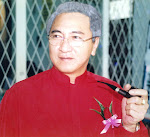
"He was pierced for our transgressions, he was crushed for our iniquities; the punishment that brought us peace was upon him, and by his wounds we are healed. We all, like sheep, have gone astray, each of us has turned to his own way; and the LORD has laid on him the iniquity of us all" (Isaiah 53:5-6, NIV).
The death of Jesus Christ is the most famous in history. The state-sanctioned murder that took place almost 2,000 years ago is still in today's news. No other crime against the innocent has remained so widespread in the consciousness of humanity for so long. This one lives on as a story that is told again and again.
The injustice of the arrest, trial and death of Jesus Christ is profound in that no person was ever so innocent, so sinless, so blameless, so undeserving of such punishment. Peter testifies that He "committed no sin, nor was deceit found in His mouth" (1 Peter 2:22). He was the most virtuous man who ever lived.
Jesus challenged His enemies, "Which of you convicts Me of sin?" (John 8:46). The centurion, the officer in charge of His execution, was convinced that He had executed a righteous man (Luke 23:47). One of the thieves crucified with Him understood that Jesus had done nothing wrong and didn't deserve to die (Luke 23:41).
Pilate, the governor who issued the final command for the execution to proceed, proclaimed twice to the Jews that he found no fault in Jesus (John 18:38; 19:4). Yet the deed was carried out, in all its horror and intensity, not sparing this innocent Man.
He did nothing to deserve the horrendous death imposed on Him, for He was "holy, harmless, undefiled, separate from sinners" (Hebrews 7:26). He was, after all, the Son of God, as the centurion recognized (Mark 15:39). This was not the injustice of the century, or the millennium, but the injustice of the history of the human race.


.jpg)




No comments:
Post a Comment